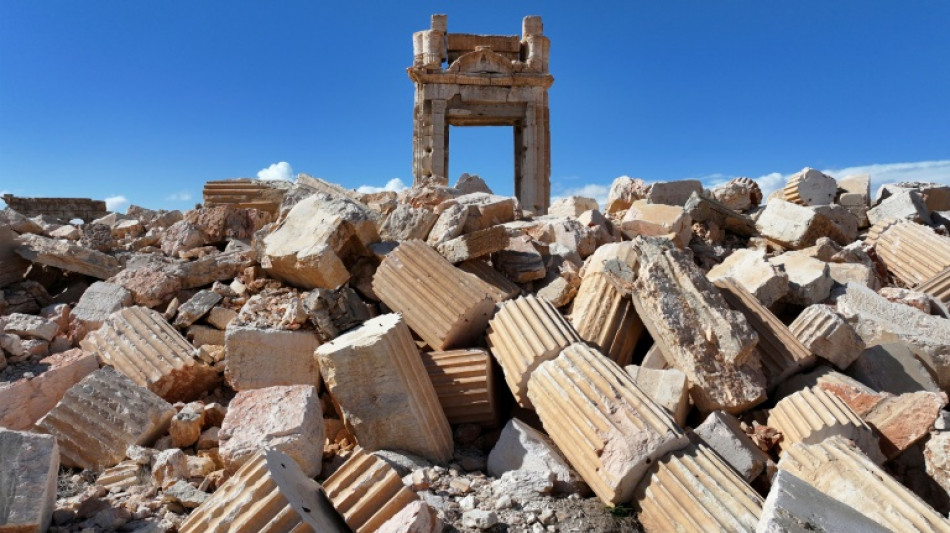
CMSC
0.0000

New European rules designed to crack down on the trafficking of stolen antiques and art are causing alarm among gallery owners, with some dealers warning of suffocating red tape that will affect trade.
The sector is bracing for the implementation of Regulation 2019/880 on June 28 which will introduce strict new requirements for imports into the European Union from non-EU countries.
Dealers wishing to import goods such as archaeological treasures will have to provide documentation and proof that they have been exported from their country of origin legally.
Other items including artworks, coins or books that are worth more than 18,000 euros ($20,500) and are more than 200 years old will also be subject to the restrictions.
"We'll end up buying nothing outside the European Union," warned Antonia Eberwein, vice-president of the National Union of Antiques Dealers (SNA) in France.
She warned that the markets for archaeological items, as well as pre-Columbian, Chinese or Indian art "risk being depleted, without putting an end to illicit trafficking, which by nature is invisible and undeclared".
Pierre Valentin, an art and heritage specialist at London-based law firm Fieldfisher, believes the aim of the regulation is "laudable" but that implementing it could lead to an "evidential nightmare for collectors".
In some cases, goods will have left their country of origin centuries ago before changing hands several times among collectors, with today's owners left needing to prove their property was exported legally.
"We're being asked to provide things that don't exist," said Eberwein, calling the regulation "absurd" and the evidence requirement "a total lack of understanding of the realities" of the market.
- Terror financing -
The regulation is a European response to developments spanning terrorism in the Middle East to changing attitudes to cultural appropriation.
The links between organised crime, terror groups and trafficking in cultural goods have been repeatedly raised by international police group Interpol and the United Nations.
Al-Qaeda and the Islamic State (IS) group were both found to have looted archaeological sites under their control in Iraq and Syria to help fund their activities.
The EU regulation, which was first proposed in 2017 following years of IS attacks in Europe, refers to the pillaging of archaeological sites reaching "an industrial scale".
The European Commission estimated in 2017 that the illicit trade in cultural goods could be worth up to 6.0 billion euros a year, putting it on a par with drugs, arms or counterfeit goods trafficking.
"Money is the life blood of war for the terrorists who attack our continent or who fight in Iraq and Syria," then EU economic affairs commissioner Pierre Moscovici said at the time.
There is also growing sensitivity in Europe about the continent's colonial history and its role in looting artistic and cultural property.
Many major European institutions from the British Museum to the Louvre in Paris are analysing their collections and, in a small number of cases, returning items to their countries of origin.
- 'Losses' -
Edouard de Lamaze, president of France's Council of Auction Houses, which regulates auction houses, said the changes would have some positive effects and "will enhance transparency for buyers and collectors, and strengthen the role of auctioneers".
But it also risks bringing "a heavy administrative burden and a slowdown in activity".
Auctioneers "will now have to systematically rely on experts to trace the history of artworks -- a task that is difficult, if not impossible", especially in the case of inherited items with no documentation, he added.
Some countries, such as Mexico, "ban all exports and claim their entire archaeological heritage", noted Alexandre Giquello, head of France's Drouot auction group.
He views the regulation "very unfavourably" and warned of "significant economic losses".
"While the aim is commendable, it could penalise a large part of the market by introducing a very convoluted process that is slow to implement and will drastically increase delays," he said.
Paris-based gallery owner David Ghezelbash, who specialises in archaeological items from Greece, Egypt and Italy, said he was "not concerned", however.
He operates outside the EU, including with American museums, and he already regularly commissions independent experts "to trace the history of each work, as far as possible".
He acknowledged that "a grey area" would be formed for objects without documented provenance, however, especially inherited pieces which risk being discredited.
K.Pokorny--TPP